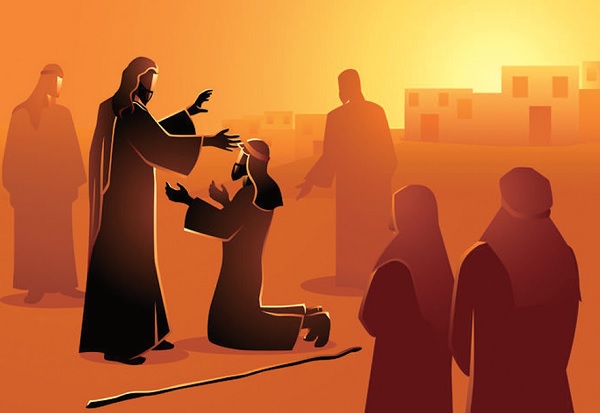Christ's political path
Translated by Lin Yu

Divisive politics, dealing with differences
Looking at the world situation, nationalism (also known as nationalism, nationalism, nationalism) is on the rise in many countries; the COVID-19 epidemic has exposed global inequality; elections in places such as Belarus (Belarus) and the United States have brought about painful divisions in the country... , various circumstances have led some Christian leaders to decide that the church should be a safe place, separate from and above topics about the president, the regime, policies, etc. Other Christian leaders work closely with the powerful to seize opportunities to reestablish Christian values in society. Some choose to define the church entirely as a place of opposition.
The fact that Christians have such divergent attitudes toward politics is not unfamiliar to people living in the political environment of Jesus' time. Under Roman rule, many Jewish religious leaders, such as the Sadducees and Pharisees, chose to submit to the political forces in power. The Zealots adopted tenacious hostility and resorted to force to resist Roman rule. The Essenes, a large branch, added a different view, placing personal piety and holiness as the first priority, and established a community separated from political chaos.
The Jewish religious society at that time reflected a spectrum of views on political power at all levels, which were actually similar to those today - unconditional obedience; confrontation with force; and self-purity.

▲The "coming", "crucifixion" and "resurrection" of Christ enable the church to find an alternative political path in a divided society.
Incarnation, suffering, resurrection
But what political choices did Jesus make? What does it mean for the church today in the midst of divisive politics? I believe that the Way of Jesus provides another option, or what can be called the "incarnation", "crucifixion", and "resurrection" of the church of Christ.
First, Jesus did not establish a new government, as many in Israel had hoped. Instead, Jesus created an alternative community of believers. This group of people transform society on a grassroots basis through a completely different way of life. They take care of the "least brothers"; they establish a community that is not divided according to Jew/Gentile, man/woman, rich/poor..., no matter rich or poor, high or low, they treat everyone equally; they form a "fellowship" with each other to share life. (koinonia, that is, "fellowship").
When Jesus became flesh, he took on the nature of a slave and walked with the outcast and marginalized people in society. In the same way, we should also be called to live an alternative life among the public as the Church of Christ "coming into the world".
Secondly, when Christ came to earth, he was not a vassal of the political power or used politically. Jesus openly confronts the spirit of destruction and sin-dominated systems in the world. He was crucified for this. The church that follows Jesus is called to humbly uphold the moral standards of the kingdom of heaven, respond to the prophet’s call to do justice, love mercy, and show love, and to discern right from wrong
And seek remedies and speak out to the masses. Doing so requires public sacrifice and courage in the face of destructive political realities such as racism, nationalism, inequality, greed, and xenophobia. This is the church that lives out the "passion" of Christ.
In addition, Christ’s resurrection and the reconciliation of “all things to Himself” (see Colossians 1:20) create hope for good politics in today’s generation. This is a prophetic vision: foreseeing and living out a new way of life in the world, not through fear, violence, and greed, but in the political field that embodies love for neighbor, reconciliation, and justice for everyone. This is the political philosophy of the Church of the "Risen" Christ.
Just like Christ’s “coming into the world,” the church must also bow down among the excluded, rejected, and hurt, affirming their holiness and dignity. Just as Christ "suffered" for his testimony, so the church's testimony will judge the world's destroying spirit. Just like Christ's "resurrection", the church must also live out the prophetic vision in its life in the form of a new creation.
(The original text was published in the English section.)
Derek Lee, graduated from the Keough School of Global Affairs at the University of Notre Dame in 2020, majoring in Sustainable Development. Dedicate yourself to serving the disadvantaged and oppressed groups. This desire took him to live in backward villages in southern Nepal, fishing port islands in the Philippines, and the South Side of Chicago. Currently serves in the United Nations Delegation of the Mennonite Central Committee.
